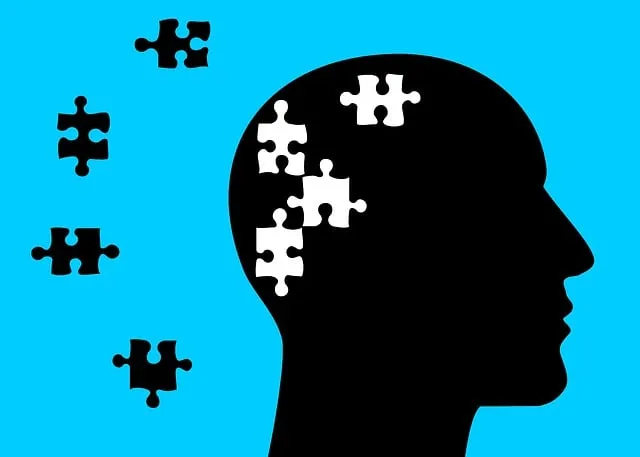Kaiser Permanente behavioral health services Broomfield prioritize mental well-being by teaching effective coping skills, crisis intervention guidance, and personalized care. Their programs focus on self-esteem improvement, stress management, and mindfulness techniques to build resilience and promote healthy self-care practices. By identifying personal coping strategies, individuals gain tools to manage stress, anxiety, and life challenges, ultimately fostering mental wellness and empowerment.
“Enhance your mental well-being with a deep dive into coping skills development. This comprehensive guide explores essential strategies for navigating life’s challenges, highlighting the pivotal role of Kaiser Permanente Behavioral Health Services Broomfield in fostering resilience. From understanding the fundamentals of coping skills to identifying personal strategies and integrating healthy mechanisms into daily routines, this article equips readers with tools to thrive. Discover practical tips and techniques, inspired by the innovative approach of Kaiser Permanente Broomfield, for a more balanced and resilient life.”
- Understanding Coping Skills: An Overview for Mental Well-being
- The Role of Kaiser Permanente Behavioral Health Services Broomfield in Promoting Resilience
- Identifying Personal Coping Strategies: A Step-by-Step Guide
- Integrating Healthy Coping Mechanisms into Daily Life: Tips and Techniques
Understanding Coping Skills: An Overview for Mental Well-being

Coping skills are essential for maintaining mental well-being, and understanding their significance is a crucial step towards enhancing overall health. At Kaiser Permanente behavioral health services Broomfield, we recognize that life’s challenges can be overwhelming, and providing individuals with effective coping strategies is vital to navigate these obstacles. Coping refers to the thoughts, behaviors, and actions people use to handle stress, anxiety, or difficult emotions, allowing them to maintain a sense of control and resilience.
Developing robust coping skills enables folks to manage crises, boost confidence, and engage in healthy self-care practices. Our expertise in crisis intervention guidance ensures individuals are equipped with tools to confront challenges head-on. By fostering resilience and self-awareness, we empower people to overcome adversity, leading to improved mental health and a more fulfilling life.
The Role of Kaiser Permanente Behavioral Health Services Broomfield in Promoting Resilience

Kaiser Permanente Behavioral Health Services Broomfield plays a pivotal role in fostering resilience among individuals seeking support for their mental well-being. Through comprehensive programs and personalized care, they empower people to navigate life’s challenges with greater adaptability and strength. The services offered focus on various aspects of psychological resilience, including self-esteem improvement, burnout prevention, and effective stress management techniques.
By providing a safe and supportive environment, Kaiser Permanente helps individuals develop coping skills tailored to their unique needs. This holistic approach acknowledges that building resilience is not just about overcoming adversity but also about cultivating positive mindset shifts, enhancing self-care practices, and learning effective strategies to manage stress and anxiety. As a result, individuals equipped with these tools become better equipped to handle life’s ups and downs, fostering a sense of empowerment and overall mental wellness.
Identifying Personal Coping Strategies: A Step-by-Step Guide

Identifying Personal Coping Strategies is a powerful tool for anyone looking to enhance their mental wellness and overall resilience. At Kaiser Permanente behavioral health services Broomfield, we often encourage individuals to take an introspective journey to uncover their unique coping mechanisms. Here’s a simple step-by-step guide:
1. Reflect on Stressful Situations: Begin by acknowledging the moments that trigger stress or anxiety. Reflecting on these situations allows you to recognize patterns and identify specific triggers. For instance, do certain work tasks or interpersonal conflicts tend to overwhelm you?
2. Explore Current Coping Mechanisms: Everyone has natural coping strategies, often developed over time. Consider how you currently manage stress: Do you engage in physical activities like a run or yoga session? Or perhaps you find solace in creative outlets such as painting or writing? Some people prefer talking things out with a trusted friend, while others might turn to mindfulness practices or engaging hobbies.
3. Experiment and Evaluate: Not all coping strategies work equally for everyone. Experiment with various techniques to discover what resonates best with you. Try keeping a journal to record your feelings before and after employing different strategies. Reflect on how each method impacts your mental wellness and overall confidence boosting abilities. For instance, practicing deep breathing exercises might help calm your mind and body during stressful times, thereby reducing anxiety symptoms.
4. Develop a Personalized Toolkit: Based on your reflections and experiments, create a toolkit of coping strategies tailored to your unique needs. This could include a combination of techniques like mindfulness meditation, physical exercise routines, or specific hobbies that provide mental relief. By integrating these practices into your daily life, you empower yourself with effective tools for managing stress and fostering better mental wellness using Mind Over Matter principles.
Integrating Healthy Coping Mechanisms into Daily Life: Tips and Techniques

Integrating healthy coping mechanisms into your daily routine is a vital step towards enhancing your overall mental wellness. Kaiser Permanente behavioral health services Broomfield offer valuable insights and resources to navigate through life’s challenges. Start by identifying triggers that lead to stress or anxiety; this awareness allows for proactive intervention. Techniques such as mindfulness meditation, deep breathing exercises, and yoga can be easily incorporated into daily schedules. These practices promote a sense of calm and help manage emotional responses.
Consider creating a consistent self-care routine. This might include engaging in physical activities you enjoy, maintaining a balanced diet, and allocating time for hobbies or social interactions. The Mental Wellness Podcast Series Production can also be a great tool to explore various coping strategies and connect with others on similar journeys. By combining these approaches, individuals can develop a robust toolkit for emotional healing processes, enabling them to navigate life’s ups and downs with resilience.
Coping skills development is a vital aspect of maintaining mental well-being, and Kaiser Permanente behavioral health services Broomfield plays a crucial role in promoting resilience. By understanding coping mechanisms and integrating healthy techniques into daily life, individuals can better navigate challenges. The step-by-step guide provided offers practical strategies for identifying personal coping strategies, while the tips and techniques section offers actionable ways to enhance these skills. With the support of resources like Kaiser Permanente Broomfield, folks can foster a robust toolkit for managing stress and adversity, ultimately enhancing their overall quality of life.






